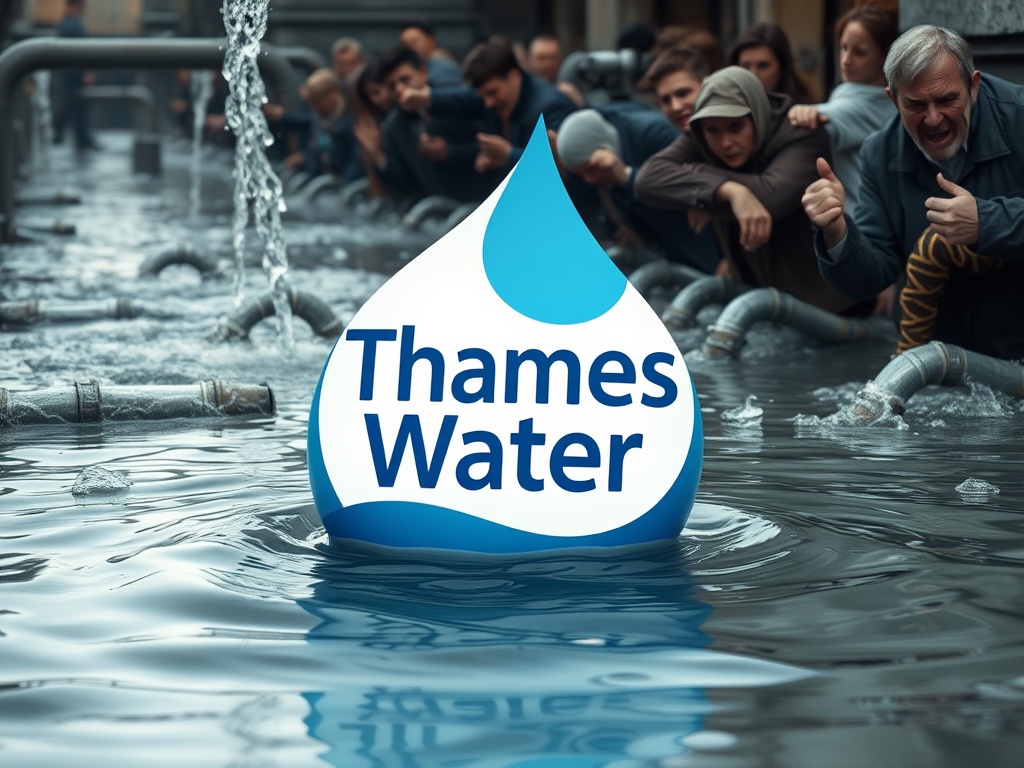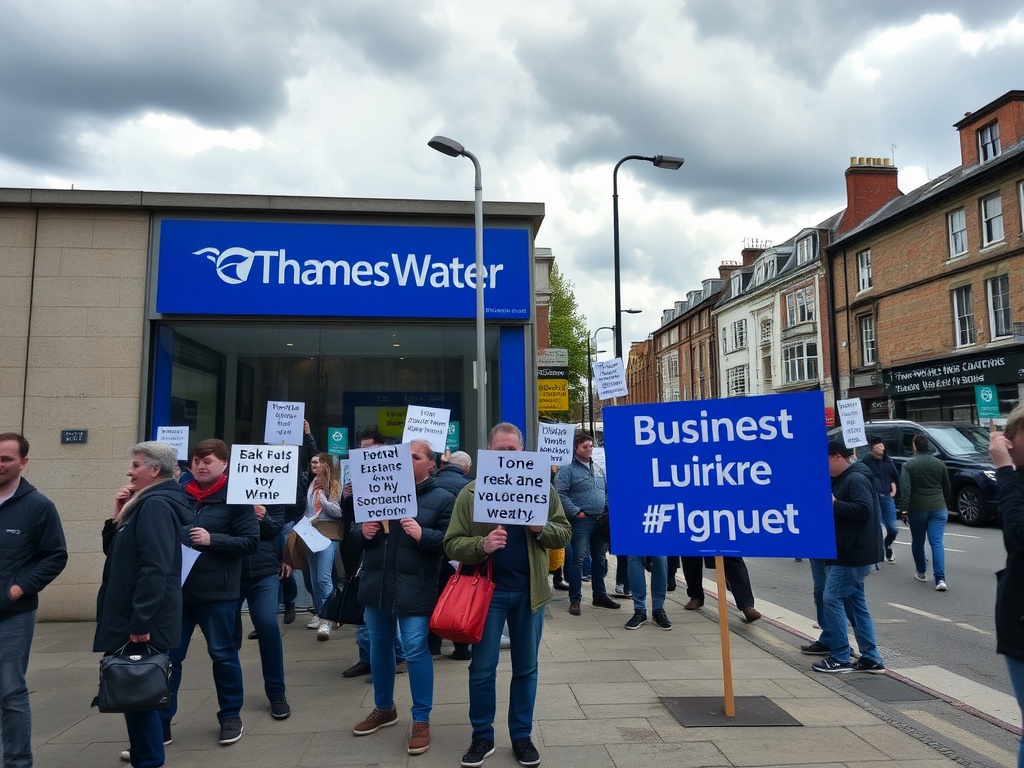As Thames Water scrambles to avert a financial disaster, customers have expressed feelings of being “exploited” due to soaring bills. Many are outraged over the persistent sewage discharges into local rivers, leading to an escalating sense of frustration.
Last week, the company sought approval from the Competition and Markets Authority (CMA) to raise bills even higher than the previously sanctioned 35 percent increase authorized by Ofwat for the period from 2025 to 2030. Carrying a staggering £19.5 billion in debt, Thames Water also secured a crucial win in the High Court, allowing it to obtain a £3 billion loan.
The initial £1.5 billion tranche of this loan will keep the company operational until September 2025. Should the CMA greenlight its request, Thames Water, which provides services to 16 million customers across London and the southeast, could receive two additional tranches of £750 million each, extending its liquidity to May 2026.
While Thames Water claims that the loan will facilitate improvements to its infrastructure and wastewater services, customers voiced their skepticism to The i Paper. Many fear that the funds will primarily benefit investors rather than enhance services, leading to increased sewage discharges into England’s rivers.
Martin Abrams, a 44-year-old Labour councillor in the constituency of Environment Secretary Steve Reed, expressed his growing anger as a Thames Water customer. “I may be a Labour councillor, but I am also a Thames Water customer who feels increasingly frustrated,” he stated. He criticized the company for treating its operations like a cash cow, extracting maximum profits while neglecting essential infrastructure.

He recounted a recent incident where his family endured two days without water due to a burst main, emphasizing the dire situation for residents in small homes. “The thought of a 35 percent bill increase, especially with the service we receive, makes my blood boil,” he added. Abrams characterized the bailout loan as a “stunning act of corporate greed” and lamented the lack of adequate investment in the region’s water infrastructure.
A spokesperson for Thames Water asserted that the loan would not impact customer bills, but would instead unlock billions for necessary upgrades to pipes, sewage treatment facilities, and maintenance of high-quality drinking water.
Lois Davis, a 70-year-old resident from south London, declared her feeling of exploitation by Thames Water, prompting her to boycott her bills as a form of protest. “It’s a matter of principle,” said Davis, a member of the Boycott Thames Water campaign. “How can a company with 16 million guaranteed customers claim it cannot meet its financial obligations?”
She criticized the company for its failure to provide adequate service, pointing out the negative impacts on public transportation due to frequent burst pipes. “The company is heading for financial ruin and should be returned to public ownership,” she concluded.
Joe Davies, from southwest London, is involved with Take Back Water, a campaign advocating for Thames Water to return to public ownership through a strategy of “mass non-payment.” He noted that nearly 7,000 people have pledged to boycott their bills, reflecting widespread discontent. “People are reaching their breaking point. We’ve tried various methods of protest, but nothing has worked,” he stated.
Davies criticized the company’s decision to take on a £3 billion loan, arguing that it merely postpones an inevitable collapse. “Thames Water is already unable to cover its existing loan interest, so this just delays the inevitable. Once again, customers will be left to bear the consequences,” he remarked.
Matthew Topham, lead campaigner at We Own It, pointed out that customers are trapped in a “doom loop” where the company continually raises bills to manage its spiraling debt. “The system is fundamentally broken, leading to a cycle where increased debt necessitates higher customer bills,” he explained.
Topham raised concerns about potential new shareholders, warning that some bids for Thames Water involve selling off assets worth significantly more than the investment offered. He cited an infrastructure investor’s bid that included plans to raise £4 billion through asset sales, potentially sacrificing vital public resources for short-term profit.
A Thames Water spokesperson reiterated that they offer substantial support for customers struggling with bill payments and emphasized their commitment to assisting those in financial distress. They stated, “If customers can afford to pay but choose not to, it may adversely affect their credit rating and lead to debt collection procedures.”
The spokesperson for the Department for Environment, Food and Rural Affairs commented, “The company remains stable, and the government is closely monitoring the situation. It would be inappropriate to comment further on the financial matters of a private company.” The Consumer Council for Water and Ofwat have been contacted for further remarks.




